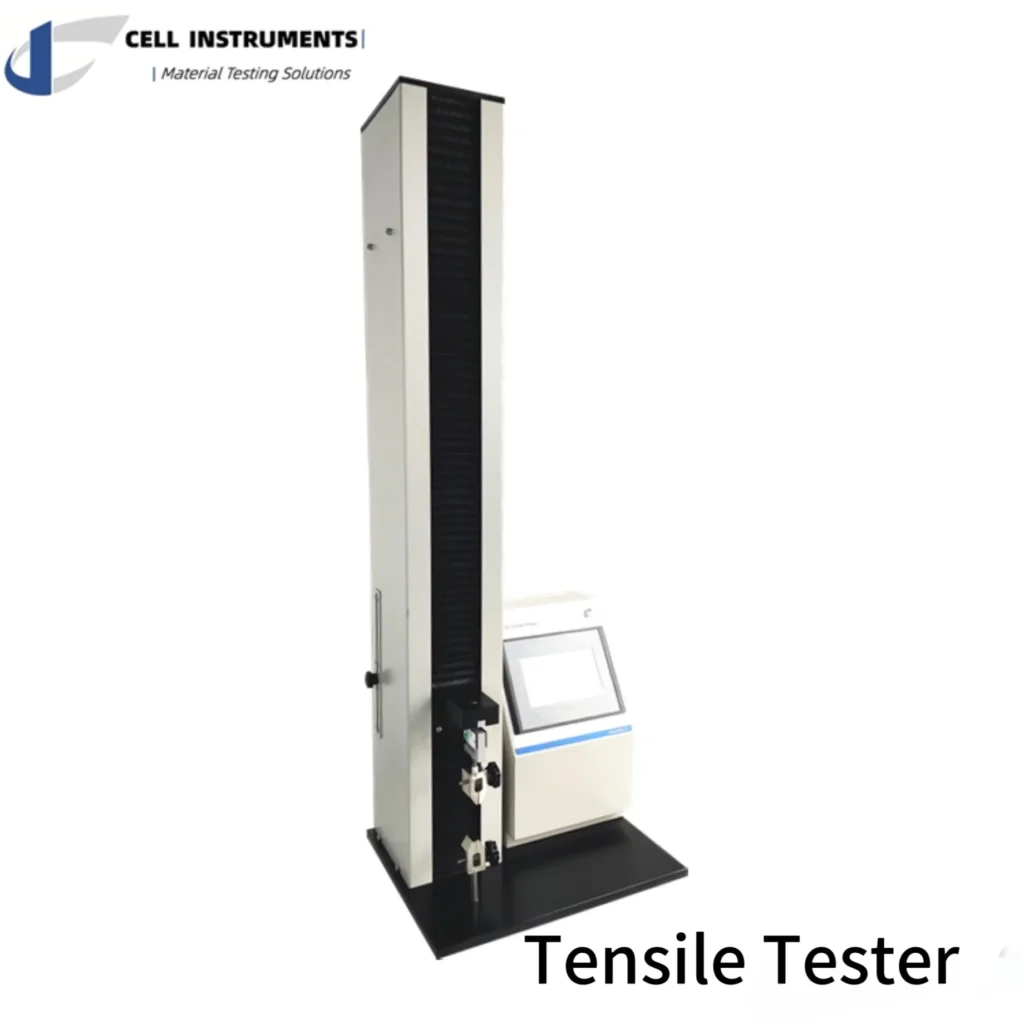The tensile strength of polyethylene is a critical factor when evaluating the performance, reliability, and durability of plastic films and packaging materials. Polyethylene (PE), widely used in flexible packaging, medical films, agricultural films, and industrial liners, must demonstrate sufficient mechanical strength to withstand tension, stretching, and deformation during usage and processing.
Accurate measurement of this property is essential for quality assurance, regulatory compliance, and product development. As a leading provider of packaging test equipment, Cell Instruments offers comprehensive solutions like the TST-01 Tensile Tester to ensure reliable testing of PE films and other flexible materials.
Common Testing Methods for Plastic Tensile Strength
Plastic Tensile Strength Test and ASTM D882
The plastic tensile strength test determines the force required to pull a material until it breaks. For polyethylene and other plastic films, the most widely used method is defined in ASTM D882, which specifies procedures for measuring tensile strength, yield strength, and elongation at break of thin plastic sheeting.
Using ASTM D882 ensures that data is consistent, reproducible, and comparable across different laboratories and production sites. It’s especially important for industries that must meet international regulatory standards.
PE Tensile Strength and Elongation Measurements
PE tensile strength refers to the maximum stress that a polyethylene film can endure while being stretched before it breaks. However, tensile strength alone doesn’t tell the full story.
Tensile and elongation characteristics are often evaluated together in an elongation tensile test. Elongation measures how much the film stretches before breaking, usually expressed as a percentage of the original length. This gives insight into flexibility and ductility—two important attributes for applications like medical packaging or shrink films.
Tensile and elongation tests help manufacturers balance strength with flexibility to optimize material performance.
How Do You Measure Tensile Strength of PE?
The tensile strength of polyethylene is measured by:
- Cutting standard-sized specimens (usually rectangular or dumbbell-shaped).
- Mounting the specimen between grips on a tensile tester.
- Applying force at a constant speed until the sample breaks.
- Recording force and elongation to calculate tensile properties.
Using modern instruments like the TST-01 Tensile Tester, the test delivers high-resolution force and displacement data, displayed in real-time and analyzed through built-in software.
Application of Tensile Strength Testing in Film Materials
Film Tensile Strength in Flexible Packaging
Film tensile strength is a crucial parameter for films used in:
- Food and beverage packaging
- Medical device packaging
- PE-based barrier films
- Agricultural films and liners
A high tensile strength ensures that packaging does not tear during sealing, filling, or handling. This helps prevent contamination, preserve product quality, and ensure user safety.
In high-speed packaging lines, materials with insufficient tensile strength may stretch or rupture, leading to downtime or product rejection.
Tensile Strength Measurement and Quality Control
Tensile strength measurement is an essential part of incoming material inspections, batch release testing, and R&D validation. It allows engineers and quality control personnel to:
- Validate compliance with ASTM D882 or ASTM F88 for sealed film layers
- Monitor batch-to-batch material consistency
- Identify formulation or extrusion issues early
- Support development of stronger, lighter films
Recommended Equipment: TST-01 Tensile Tester by Cell Instruments
The TST-01 Tensile Tester is engineered for reliable and versatile tensile strength testing. It is optimized for polyethylene films, laminates, nonwovens, and more.
Key Features:
- Test Range: Up to 500 N or 1 kN, suitable for both thin films and stronger materials
- Precision Ball Screw & Adjustable Speed: From 1–500 mm/min for flexible testing protocols
- ±0.5% F.S. Accuracy: High precision with consistent force application
- Real-Time Data Display: 7-inch HMI touchscreen for visual feedback
- Built-in Programs: Support for ASTM D882, ASTM F88, and other standards
- Multi-Fixture Compatibility: Supports tensile, peel, puncture, and seal strength tests
- RS-232 Output & Optional Printer: For efficient data management and reporting

The TST-01 helps ensure reliable tensile strength measurement for materials used in packaging, medical, electronics, and more.
Final Thoughts
Understanding and testing the tensile strength of polyethylene is essential for manufacturers seeking quality, safety, and compliance. Whether you’re developing new packaging films, validating raw materials, or improving process stability, tensile testing offers a scientific approach to measuring material performance.
At Cell Instruments, we’re committed to helping engineers and quality professionals test smarter with solutions like the TST-01 Tensile Tester—built for ASTM D882, PE tensile strength, and beyond.
